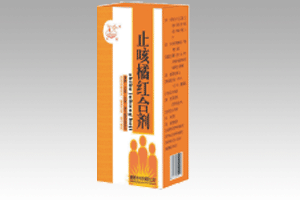The principle that family medicine should follow
Hand Sanitizer, Washless Hand Gel, Hand Gel, Waterless Hand Sanitizer GUANGZHOU HTD INTERNATIONAL , https://www.maskhtd.com The principles that should be followed in choosing a family medicine:
The principles that should be followed in choosing a family medicine:
First, according to the composition and health status of family members. If there are old people and children, pay special attention to preparing medicines for them. Patients with hypertension, TB patients, coronary heart disease patients, epilepsy patients, etc., drugs for the treatment of these diseases should be standing constantly; family medicine kits are strictly prohibited mixed with family members allergic to drugs.
Second, choose the old drug with less side effects. The toxic and side effects of old drugs have been fully exposed. They are clearly stated in the general instructions and are easy to detect and prevent. Due to the short use time of the new drug, some unexpected reactions may occur and it is not suitable for home use.
Third, choose a drug with stable efficacy and simple usage. Try to choose oral medicines, topical medicines, and less or no injection medicines.
Fourth, choose common diseases, frequently-occurring medications.
- The main types of family medicines for antipyretic analgesics: aspirin, pain relief tablets, and indomethacin.
Treatment of cold medicines: such as flutter sensitive, new Kang Taike, fast-acting cold capsules, strong Yinqiao film, white plus black cold film, children cold and so on.
Antitussive and phlegm drugs: such as will be phlegm, cough will be clear, snake gall and Chuanbei liquid, compound licorice tablets and so on.
Antimicrobial drugs: such as norfloxacin, pipemidic acid, ciprofloxacin, cotrimoxazole, and acetyl spiramycin.
Gastrointestinal antispasmodic drugs: such as Probuncin, 654-2, etc.
Digestive drugs: such as domperidone, multi-enzyme tablets, hawthorn pills and so on.
Laxatives: If the guide, rhubarb soda, glycerol suppositories, Kaisai Lu and so on.
Anti-diarrhea medicine: If it is easy to stop, stop diarrhea, Smecta and so on.
Anti-allergic drugs: such as cyproheptadine, chlorpheniramine, diphenhydramine and so on.
External anti-inflammatory disinfection drugs: alcohol, iodine, gentian violet, red syrup, potassium permanganate and so on.
Topical painkillers: such as rheumatism cream, safflower oil and so on.
Others: band-aids, wind-oil, cool oil, cotton swabs, gauze, tape, etc.
In addition, the family preparation of drugs in addition to the individual needs long-term use, the amount of preparation can not be too much, generally enough for 35 days, so as to avoid excessive amount of waste caused by failure.
- The following points should be noted when storing drugs: 1. Reasonable storage: Drugs often deteriorate due to the influence of external conditions such as light, heat, moisture, air, acid, alkali, temperature, and microorganisms. Therefore, the family-preserved drugs are best placed in brown bottles, and the caps are tightened and placed in a dark, dry, cool place to prevent deterioration. Some drugs susceptible to temperature, such as placental globulin, rifampicin eye drops, etc., can be stored in a refrigerator freezer; while alcohol, iodine and other preparations should be sealed.
Second, indicate the validity period and expiry date: Drugs have an effective use period and expiration date, after the validity period can not be used again, otherwise it will affect the efficacy, and even will bring adverse consequences. Bulk drugs should be separated according to type, and affixed with an eye-catching label, stating the date of storage, drug name, usage, dosage, expiry date, each year should regularly check the spare drug, and replace it in time.
Third, pay attention to the appearance of changes: For the use of stock drugs should observe the appearance of changes. Such as tablets produce loose, discoloration; sugar-coated tablets of icing adhesion or cracking; capsule capsule adhesion, cracking; pill adhesion, mildew or insects; powder severe moisture absorption, agglomeration, mildew; eye drops discoloration, turbidity; ointment If the agent has odor, discoloration, or oil chromatography, it cannot be used again.
Fourth, safekeeping: internal medicine and external medicine should be placed separately, in order to avoid taking the wrong. Drugs should be placed in a safe place to prevent children from accidentally serving.
- Do not use too much casual medicine with family medicines. Symptoms are often one of the criteria for disease diagnosis. Casual use of medicines will Mask the symptoms, make it difficult to diagnose, or even misdiagnose. So before definitive diagnosis, it is best not to use drugs. Furthermore, drugs are dual in nature and can treat diseases as well as diseases, and severe cases can also be life-threatening. Therefore, there is no need to take medications when there are no serious symptoms, especially for drugs such as analgesics, spasmolytics, digitalis, and cortisone, and it is better to use less.
You should also pay attention to drug interactions when using medicines in home medicine boxes. When two or more drugs are taken at the same time, they can interact with each other, and sometimes one of them can reduce the efficacy or cause adverse reactions. If penicillins and tetracyclines are used together, their antibacterial effects are not as good as they are used alone. Oxytetracycline and other intestinal bactericidal drugs taken at the same time as the whole intestine, will make the whole bowel failure, because the bowel is a bifidobacteria preparation that can regulate disorders of intestinal flora. Therefore, if you want to take several medications at the same time, you should be guided by a doctor or pharmacist to avoid failure due to drug interactions.
Medications must be dosed. Overdose can cause adverse reactions and can even cause death. If the elderly and children do not pay attention to the dose of fever-reducing drugs, the body temperature may suddenly drop due to excessive sweating and cause collapse.